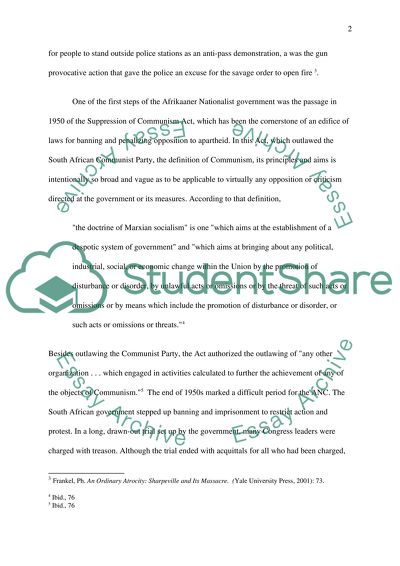Cite this document
(“South Africa Apartheid Essay Example | Topics and Well Written Essays - 2500 words”, n.d.)
Retrieved from https://studentshare.org/history/1515040-south-africa-apartheid
Retrieved from https://studentshare.org/history/1515040-south-africa-apartheid
(South Africa Apartheid Essay Example | Topics and Well Written Essays - 2500 Words)
https://studentshare.org/history/1515040-south-africa-apartheid.
https://studentshare.org/history/1515040-south-africa-apartheid.
“South Africa Apartheid Essay Example | Topics and Well Written Essays - 2500 Words”, n.d. https://studentshare.org/history/1515040-south-africa-apartheid.


